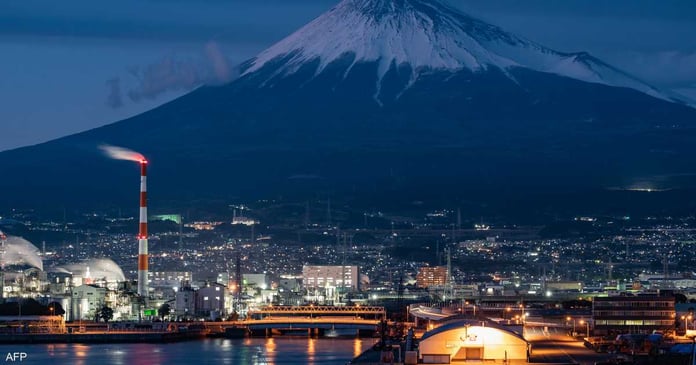Eurozone purchasing managers’ indices fell below break-even, despite factories cutting prices for the first time since September 2020.
In Britain, production fell for the third consecutive month and new orders fell at the fastest pace in four months.
In the United States, the manufacturing sector contracted for the seventh consecutive month, as new orders continued to fall amid rising interest rates, but factories boosted employment to its highest level in nine months.
Purchasing managers’ indices in China and Japan showed factory activity trended higher last month, while South Korea, Vietnam and Taiwan did not.
According to the Standard & Poor’s Global survey, the final index (HMB) of purchasing managers (PMI) in the euro zone fell Thursday to 44.8 against 45.8 in April. But it is an increase from the initial reading, which stood at 44.6, although it is below the number 50 separating growth and contraction for the eleventh month in a row.
The index, which measures output and feeds into the composite PMI to be released next Monday and is seen as a good guide to the health of the economy, fell to a six-month low of 46.4 from 48, 5.
“Weak demand in the manufacturing sector, which has been clearly reflected in the decline in PMI indices since the start of the year, has now prompted companies surveyed to cut production for the second month in a row,” said Cyrus de la Robbia, Managing Director. economist at the Hamburg Commercial Bank.
“The drop in new orders from home and abroad indicates that the low production is likely to continue for several more months,” he added.
The decline was largely based on lower activity in the four largest eurozone economies – Germany, France, Italy and Spain.
Factories have failed to halt falling demand despite falling prices, with the cost of production falling at the fastest pace since February 2016.
The rate cut should be welcomed by ECB policymakers who have so far failed to bring inflation back to their target level despite continuing the strongest monetary tightening campaign in the history of the ECB. the bank.
Official data on Thursday showed inflation last month hit 6.1%, more than three times the level targeted by the European Central Bank.
The story is very similar in the United States, where the Institute for Supply Management’s monthly manufacturing PMI fell to 46.9 last month from 47.1 in April. And the index’s record in seven months at less than 50 points indicates the contraction of activity for the longest period since the Great Recession.
Still-weak PMI readings support analysts’ expectations that the economy will slide into recession this year. But there were periods like the mid-1990s as well as the mid-to-late 1980s when PMI readings stayed below 50 for a long time without a recession.
difference in asia
Mixed Asian PMI data indicated an inconsistent post-pandemic recovery, particularly in China, overshadowing growth prospects in the region.
“PMI surveys indicate that China’s economic recovery was sustained in May, albeit at a slower pace. Lower fiscal support weighed on construction activity,” analyst Julian Evans-Pritchard said. at Capital Economics.
“However, manufacturing output has increased and the service sector continues to post decent gains, indicating that second-quarter GDP growth may not be as bad as many feared,” he added. .
The Kaiskin/S&P Global China Survey’s manufacturing PMI rose to 50.9 in May from 49.5 in April.
The reading beat a forecast of 49.5 in a Reuters poll, in stark contrast to the sharper contraction in activity seen in the official PMI released on Wednesday.
But the Kaiskin survey showed business confidence in China for the next 12 months fell to its lowest level in seven months amid worries about the global economic outlook.
Japan’s Ojibun Bank Purchasing Managers’ Index final rose to 50.6 in May, the first reading above the 50.0 threshold since October as the economy reopened amid restrictions pandemics that have stimulated demand.
However, separate data released on Wednesday showed that production at Japanese factories unexpectedly fell in April.
Elsewhere in Asia, South Korea’s Purchasing Managers’ Index rose to 48.4 in May, marking the longest streak of deflationary readings in 14 years after slowing global demand hit output and the orders.
Surveys showed that Vietnam, Malaysia and Taiwan also saw a contraction in factory activity in May, while activity in the Philippines expanded.
Indian factory activity grew at the fastest pace since October 2020, a sign that output has been supported by strong demand for Asia’s third-largest economy.
Read the Latest World News Today on The Eastern Herald.


